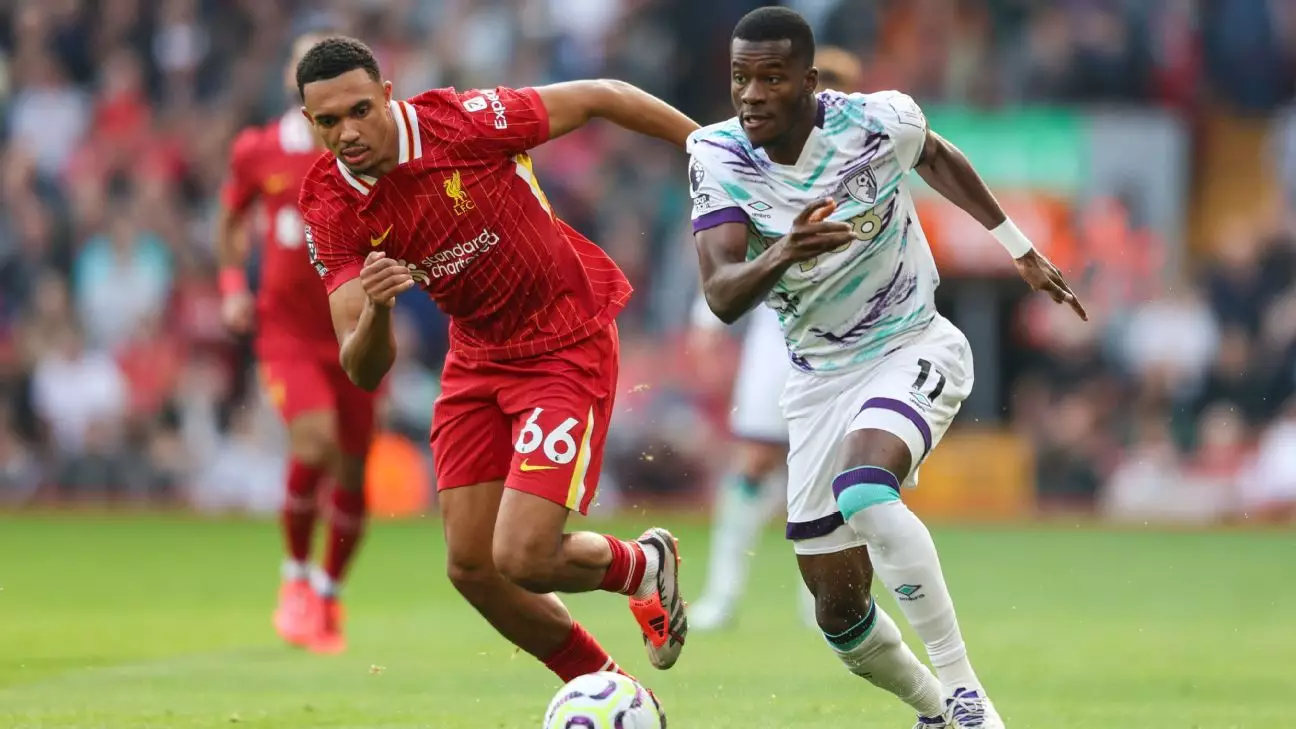Liverpool FC is brimming with potential under the guidance of their new manager, Arne Slot. With a notable emphasis on player development, Slot’s recent remarks about Trent Alexander-Arnold underscore a transformative approach to coaching. Alexander-Arnold, having long been regarded as a prodigious talent, has faced scrutiny for his defensive capabilities. Slot’s analysis—that it’s not about Alexander-Arnold’s innate ability but rather his concentration—points to an essential aspect of football often overlooked: mental preparedness.
This critique comes at a significant juncture for Alexander-Arnold, who has publicly embraced this feedback, signaling his willingness to adapt and enhance his defensive game. The young player’s determination to evolve into one of Europe’s most formidable defenders reflects not only his intrinsic motivation but also Slot’s impact as a manager who fosters constructive dialogue.
Leadership within a sports team is pivotal. Slot’s recognition of Alexander-Arnold’s contributions, specifically pointing out his history of success with the club—including winning the Champions League—illustrates how a manager can reinvigorate a player’s confidence. Transitioning from one managerial style to another can be daunting, particularly following a robust figure like Jürgen Klopp. Slot’s ability to instill trust and encourage players to express their concerns opens up a pathway for improvement and growth.
Alexander-Arnold’s candid acknowledgment of Slot’s criticism demonstrates the maturity of a player who understands the necessity of growth in pursuit of excellence. It’s this culture of open communication that can lead to a trickle-down effect, resulting in a stronger, more cohesive team.
Liverpool has solidified its reputation with one of the most formidable defensive records in the Premier League this season. With only one goal conceded thus far, the team reflects a deep understanding of tactical discipline and collective effort. Slot’s remarks about goalkeeper Alisson Becker’s return strategy illuminate the meticulous planning inherent in maintaining such defensive prowess. Alisson’s injury presented an opportunity for Caoimhín Kelleher to step up, showcasing the depth of talent within the squad.
As Slot continues to shape the team’s dynamics, the emphasis on a united front in defense is essential. Each match becomes a barometer of their growth, further enforcing the imperative that every player, including the likes of Alexander-Arnold, must be consistently vigilant and focused, especially in crucial moments.
The forthcoming Carabao Cup clash against West Ham is set to highlight these evolving dynamics. A rejuvenated Alexander-Arnold, with a sharpened focus, could very well change the narrative surrounding his defensive capabilities. The interplay between Slot’s management style and the players’ responsiveness to feedback sets a precedent for not only the current season but also the future of Liverpool FC.
Strengthening both mental and physical facets of the game will undoubtedly engender a more resilient Liverpool side. If Alexander-Arnold can successfully meld his attacking instincts with enhanced defensive concentration, the sky’s the limit for his career and, consequently, Liverpool’s aspirations on both domestic and European fronts.

